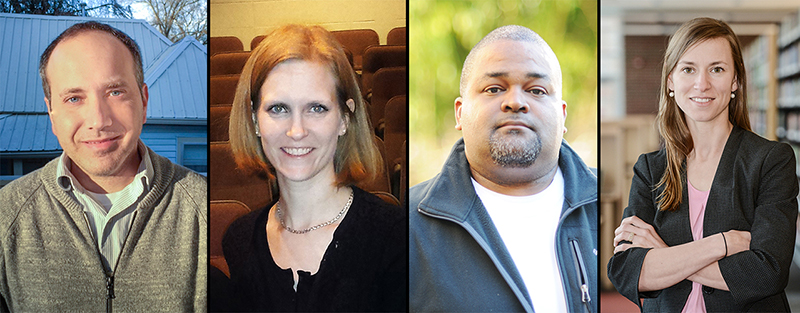News
Dalton State Hosts Black History Month Events
01/21/16

Elizabeth Eckford, a teenager in high school, was just trying to attend class. It was Sept. 4, 1957 in Little Rock, Ark.
But what was documented as Eckford, a black student, pushed her way through an angry white mob on her way to Central High School, forever changed how many Americans viewed race relations, said Dr. Seth Weitz, an associate professor of history at Dalton State.
A photo of the event was taken by Will Counts of the “Arkansas Democrat,” which shows a white teenager, Hazel Bryan, hurling insults at Eckford. It was awarded the Pulitzer Prize in 1958.
“While it instantly became a lasting image of the cruelty and savage nature of the Jim Crow South, the story of the picture’s subjects is a fascinating, but lesser known glimpse into the human heart and mind,” Weitz said.
He will explore this idea more in his presentation “Little Rock 1957: A Portrait of Hate and Reconciliation” as the first in a four-part series of speakers for Black History Month. Speakers will explore different aspects of Black History each Tuesday in February at 7 p.m. in the Goodroe Auditorium of Dalton State. Each event is free and open to the public. Weitz kicks off the series on Feb. 2.
There will also be a step show on Feb. 17 at 7:30 p.m.
“The speaker series grew out of a desire to celebrate the achievements and history of African-Americans, while at the same time recognizing the central role African-Americans have played and continued to play in American society and history, Weitz said. “My hope is that these talks will educate, enlighten, and foster interest so that in the future we can grow the program, and reach across the campus and community to further our celebration of Black History Month.”
On Feb. 9, Dr. Tammy Byron, an associate professor of history at Dalton State, will speak on “Somewhere a Real Bible: African American Slaves and Christian Religious Instruction in the Antebellum South.”
“To teach and reinforce white expectations of slaves and to assuage the guilt of holding human beings in bondage, white masters, ministers, and catechists encouraged the Christianization of American slaves in the antebellum South,” Byron said. “Their message was one of subordination and obedience, which slaves were expected to accept without question. In spite of this, however, African American men and women sometimes took it upon themselves to educate one another in a more just and merciful Christianity without their owners’ sanction.”
On Feb. 16, Dr. James L. Wright, an associate professor of sociology and criminal justice at Dalton State, will speak on “Assessing Mass Incarceration in America: A ‘New Jim Crow’ Perspective.”
“I will focus on understanding America’s system of mass incarceration through the implementation of key crime and justice policy designed to control the masses,” Wright said.
Wrapping up the series on Feb. 23 will be Dr. Susan Eckelmann, an assistant professor of history at the University of Chattanooga-Tennessee. Her presentation is titled “’Will the Colored Race Ever Be Satisfied?’ The Worldview of Anti-Civil Rights Teenage Youth and Politics During the Civil Rights Era.”
The lecture will examine the activism and evolving political vocabulary among anti-civil rights teenage youth during the mid-1960s.
“In written correspondence addressed to Governor George Wallace of Alabama, anti-civil rights teenagers conveyed their self-perception as a political minority, promoted states’ rights, and articulated a political agenda,” she said. “The moral outlook of Wallace’s teenage followers helped tighten the stitches of the New Right’s budding political and cultural fabric across the United States.”
